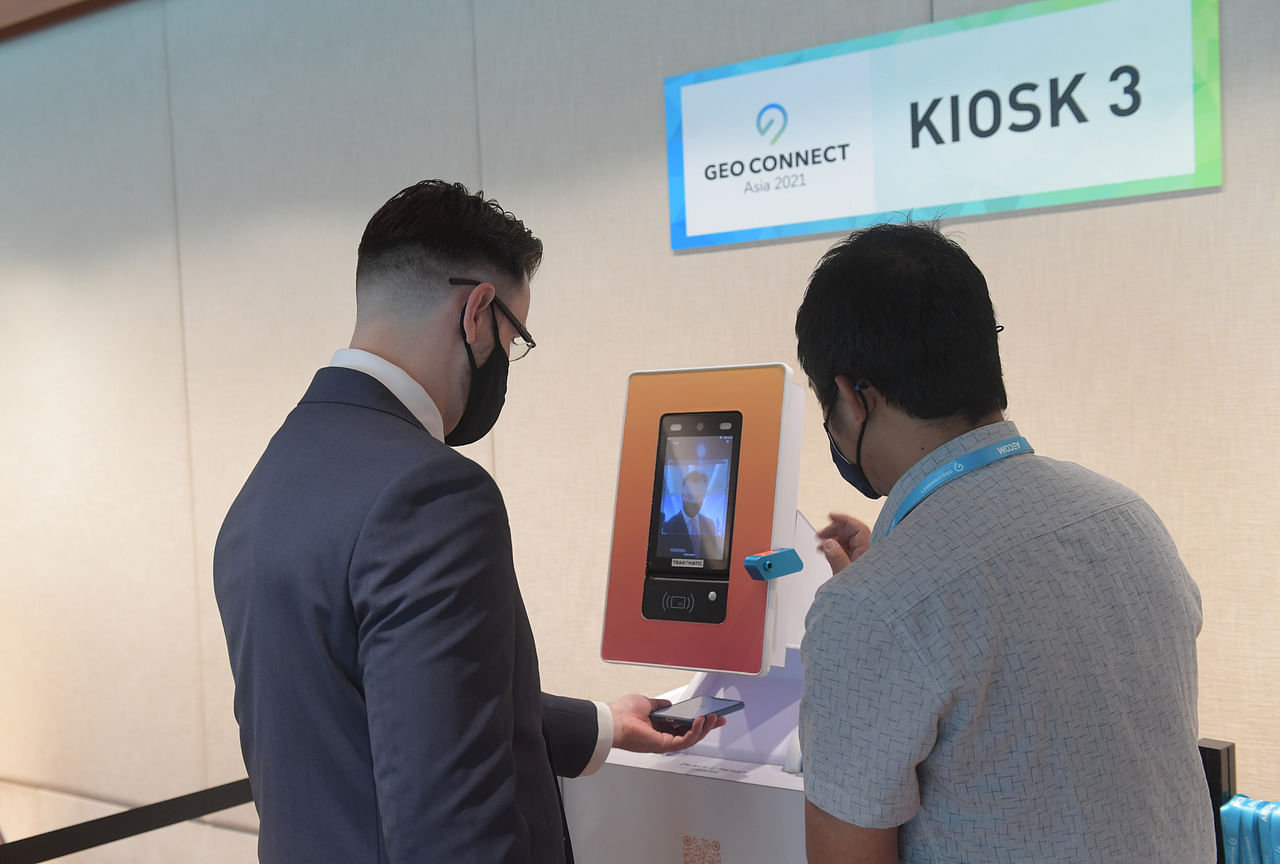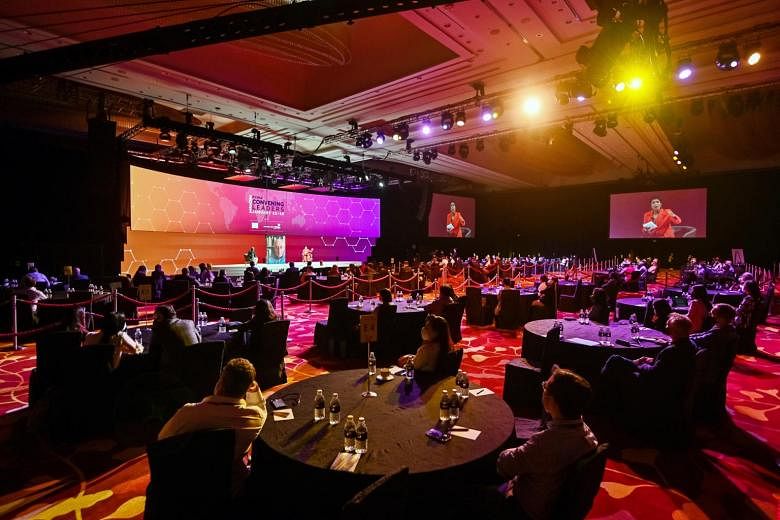SINGAPORE - While industry players in the meetings, incentives, conventions and exhibitions (Mice) sector welcome the move to increase capacity limits at events, some are also concerned about the additional cost that comes with managing more people.
On March 24, the Health Ministry announced that capacity limits for Mice events will be increased to 750 people, up from 250 people, from April 24. Attendees will have to be split into zones of up to 50 people each and safe distancing has to be observed.
The president of the Singapore Association of Convention and Exhibition Organisers and Suppliers (Saceos), Mr Aloysius Arlando, said: "It's actually a much-needed boost for our industry. This is a step forward, given our very safe and calibrated approach towards restarting and reopening our economy, particularly to travel and international visitors."
Mr Arlando, who is also the chief executive of venues at venue management and events development company SingEx-Sphere Holdings, said the company has been receiving a "steady stream" of inquiries for events of more than 250 people since the news broke.
He added: "While the increase in capacity opens up more opportunities, it is also a different operating environment now. Considerations such as consumer behaviour and increase in operational costs have an impact on commercial viability, which is equally, if not more, important."
Some are concerned about the overheads that will rise with capacity, as more resources will be needed for crowd control measures.
The additional cost will be substantially higher, according to the founder and director of 1 M.I.C.E, Mr Kamen Lim.
"There has to be more signage put up, more people to manage safe management measures. The venues also have to be bigger to be able to accommodate more people. In the Covid age, one person's space is the equivalent of three people's," he said. "Staff are also commanding a higher pay because the nature of the job is high-risk."
Aspen Event Planners director Leslie Windrath said he projects total cost to increase by about 20 per cent to 30 per cent.
Mr Windrath said: "I think this is a new challenge that event planners and organisers have to face in organising Mice events in the Covid era on how to manage costs and adhere to safe management measures."
Another factor that adds to costs is the pre-event testing, which will be required at Mice events of more than 250 people.
Mr Arlando said pre-event testing costs have been borne by event organisers and their partners as part of operating costs. It is believed the testing costs are not passed on to attendees.
He added that Saceos is looking at working with other industry stakeholders to develop partnerships with testing vendors to be deployed at different events, leveraging economies of scale that may lower the cost of the test.
Event planners and organisers also believe that Mice attendees would be willing to foot the bill if needed.
Explaining why, TLC Events chief executive Thomas Lim said: "To businessmen, these are nominal costs that will most likely be treated as business expenses. People will still choose to pay a small fee to attend events because these are business opportunities, which may be hard to come by now."

It has been reported that the cost of an antigen rapid test is under $50 and is likely to come down further.
Said Ms Karen Bolinger, Asia-Pacific managing director of PCMA, an association for business event strategists: "I think people are just ready to meet. There is an anticipation out there, so I don't think the cost of a test or even the idea of a test will be a deterrent."
The Singapore Tourism Board said the organisers of some events are keen on scaling up the number of attendees.
The events include the Hotel Investment Conference Asia Pacific in October, as well as the Insuretech Connect Asia in June.
What to take note of for pre-event testing
Antigen rapid tests (ARTs) are encouraged for pre-event testing as they offer shorter turnaround times and are more affordable, said the Ministry of Health (MOH).
From April 24, more events will be allowed to scale up with pre-event testing. These include wedding receptions, marriage solemnisations, live performances, pilot business-to-business events, and pilot spectator sports events.
The time from swab registration to notification of results is around 30 minutes for an ART, compared with up to 48 hours for a polymerase chain reaction test.
MOH said that apart from being more affordable, the ARTs' quicker turnaround time "gives you assurance that your visit to... the event, business, or activity can be covered by the validity period of the test".
The validity of the test result is 24 hours from the time the person is registered in-person at the testing site.
As long as the result is valid, the individual will be allowed to enter and stay at the event. This means the person must get tested before the start of the event, and not more than 24 hours before the end of the event.
Those who have completed the full vaccination regimen and have had time to develop sufficient protection, which is two weeks after the second dose, do not need to undergo pre-event testing.
Those who have recovered from a Covid-19 infection also do not have to go through pre-event testing.
More details on the pre-event testing will be released later.












